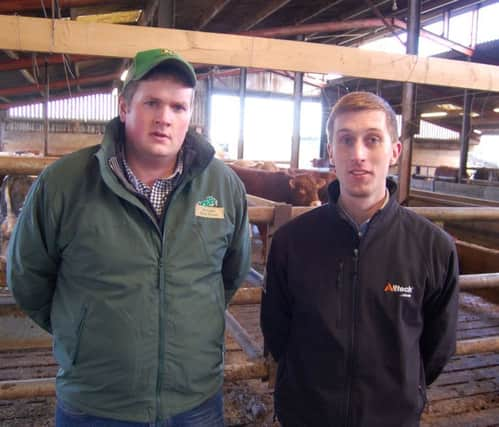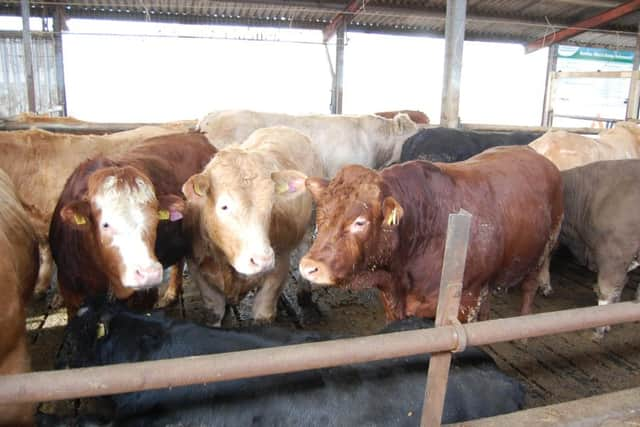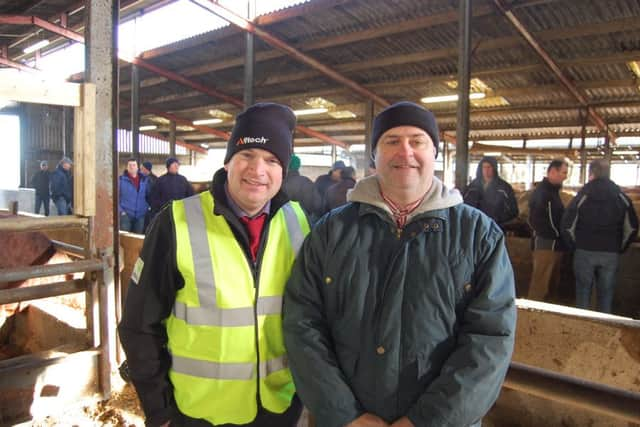Livestock farmers attend master class in beef finishing


The event, which was organised by Alltech, Zoetis and EasyFix attracted a turnout of 170 producers. The Bourns finish 1,500 cattle each year, mostly bulls.
The farm is also home to 1,500 March lambing ewes. Richard Bourns confirmed that every effort is made to produce as much home produced feed on the farm as possible.
Advertisement
Advertisement
“This includes the growing of all our own cereals, rape, wholecrop, forage maize and grass.


“This allows us to guarantee customers that all our beef is GM free. We do not get a premium payment for this. But it does ensure that we can get cattle away on a weekly basis.
“Looking to the future, though, Irish beef farmers need to get paid accordingly when they take the additional steps to enhance the quality and traceability of the cattle they are bringing to market.
“In our case, guaranteeing that cattle are GM-free has come at an additional cost. And we would like paid for this.”
Advertisement
Advertisement
From a beef management point of view Richard pointed out that the first 48 hours after arrival are critical in terms of getting the best possible performance from bought in stock.


“Our focus is on allowing the animals de-stress after the journey they have undertaken.
“We have put in place a special straw bedded area which allows the cattle to get used to their new surroundings. We vaccinate all purchased cattle for respiratory disease. However, none of these activities are carried out until the animals have been on our farm for at least 48 hours.”
Richard also pointed out that finishing cattle must have ad lib access to fresh, clean water at all times.
Advertisement
Advertisement
“We have also installed EasyFix slat rubber on all our pens, in order to give the animals a more comfortable lie.”


Alltech’s Richard Dudgeon said that livestock farmers recognise the need to maximise animal performance during the finishing period.
“Animals need to adapt to their new environment and diets as quickly as possible. Cattle coming home from marts or grass that are being housed in sheds for finishing, are subject to several stress factors such as weaning, mixing with new groups, new surroundings as well as changes in their diet,” he said.
“If these factors are not managed correctly animals will not reach their full potential, resulting in a longer finishing period and higher feed costs. The main challenges during this period are bovine respiratory disease, lameness and stomach upsets or acidosis.
Advertisement
Advertisement
“To reduce these issues greater emphasis needs to be placed on the nutrition and management during this arrival period in order to improve performance thereby, reducing the number of days through to slaughter.”